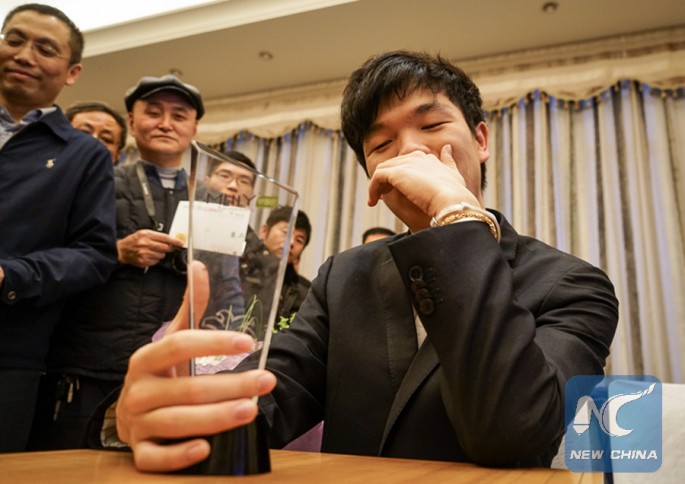China’s Go champion Ke Jie is being eyed as the next opponent for AlphaGo, after Google’s artificial intelligence (AI) program secured a historic win against South Korean grandmaster Lee Se-dol in Seoul on Tuesday.
Developed by Google's London-based AI subsidiary DeepMind, AlphaGo clinched the final match to win the best-of-five series 4-1 against Lee over seven days.
Deepmind CEO Demis Hassabis previously expressed his willingness to pick Ke in the future, according to China's state-owned Xinhua News Agency.
On Sunday, Raia Hadsell, research scientist at Deepmind, issued a direct challenge to Ke online.
"Up for a match, Ke Jie?" Hadsell said on her Facebook page after AlphaGo was awarded fourth place at the international Go ratings following its sole defeat to Lee on Sunday. AlphaGo's rating has since climbed to second on Wednesday.
Ke, the youngest Go player to win three major titles and one of Lee's greatest rivals, previously expressed his confidence on defeating Google's AI.
"I believe I can beat it. Machines can be very strong in many aspects but still have loopholes in certain calculations," the 18-year-old said in an interview with Xinhua.
However, Ke noted that his chances of winning become slimmer by the day due to AlphaGo's strong learning ability.
"It can teach itself and evolves better and better. It is hard to predict [who is going to win] after some time," he said.
Ke, currently ranked number one in Go ratings, became the new world Go champion on Jan. 14 after defeating Qiu Jun at the 2nd Bailing Cup final. He reached ninth dan, Go's highest rank, after besting Shi Yue at the 2015 Samsung Cup in December in Shanghai, which was then followed by another victory against Lee at the M-Lily Cup in January.
Go, which is highly popular in China, Japan and South Korea, is an ancient Chinese board game played on a board crisscrossed with a grid of black lines. Two players move black and white stones along the grid with the aim of seizing the most territory.



























